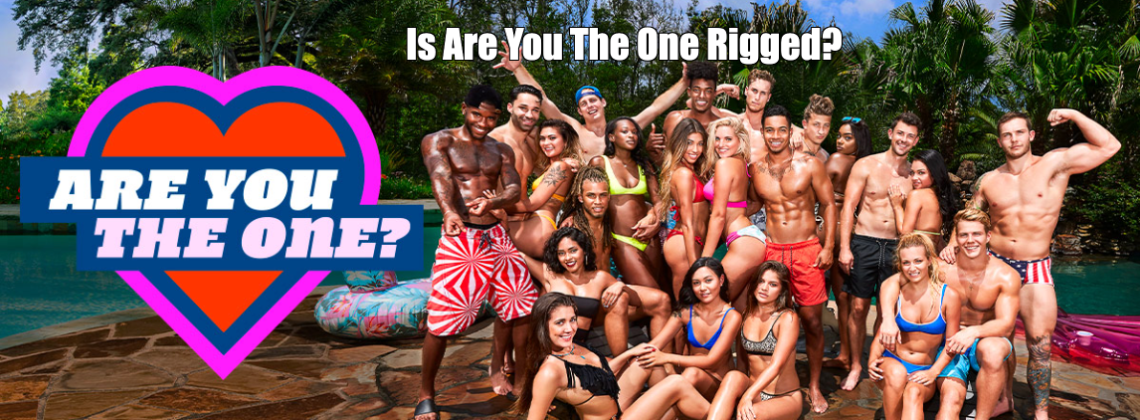
Is Are You The One Rigged?
Summary
Pros
- Predictability: If the show is rigged, it might follow a formula that makes it easier for fans to predict outcomes, adding an extra layer of engagement through fan theories and speculation.
- Narrative Satisfaction: Rigging could ensure dramatic, satisfying conclusions to story arcs, keeping viewers hooked and ensuring every season ends on a high note.
- Entertainment Value: Manipulation behind the scenes can heighten drama, intensify conflicts, and enhance romantic connections, making the show more entertaining to watch.
Cons
- Authenticity Issues: If viewers believe the show is rigged, it can detract from the authenticity of the relationships and the perceived sincerity of the contestants’ emotions.
- Viewer Distrust: Suspicions of rigging can lead to viewer distrust, potentially diminishing the show’s credibility and affecting audience engagement and ratings.
- Reduced Stakes: Knowing or suspecting that outcomes are predetermined can reduce the stakes of the game, making the contests and challenges feel less meaningful and the viewing experience less immersive.
“Are You The One?” is a reality TV show that has captivated so many audiences around the globe with its unique blend of drama, romance, and strategic gameplay. The premise is simple yet compelling: a group of singles is matched through a rigorous matchmaking process before the show begins, but they don’t know who their perfect match is.
The goal for contestants is to find their predetermined partner among the group by the end of the season to win a shared grand prize. Given its setup, a recurring question among fans and sceptics alike is whether “Are You The One?” is rigged. This review delves into this question, analyzing various aspects of the show to offer a comprehensive overview.
First and foremost, understanding the term “rigged” in the context of reality TV is crucial. “Rigged” implies that outcomes are predetermined or manipulated by producers or other behind-the-scenes figures rather than being the result of the contestants’ choices and actions. In the case of “Are You The One?”, allegations of rigging would imply that the show is manipulated to ensure certain outcomes, be it drama, specific match-ups, or even the final result.
The matchmaking process is the foundation of “Are You The One?” and is often cited as evidence both for and against the rigging argument. The show claims to use a thorough and scientific matchmaking process involving interviews, compatibility tests, and various other methods to determine the perfect matches. While the details of this process are not fully disclosed, the complexity and depth suggest a genuine effort to create genuine matches. However, sceptics argue that the lack of transparency leaves room for manipulation, questioning whether the matches are as “perfect” as claimed.
Another point of contention is the editing of the show. Like any reality TV, “Are You The One?” relies heavily on editing to create a compelling narrative. Critics argue that selective editing can exaggerate or fabricate relationships and conflicts, potentially influencing audience perceptions and even contestant behaviour. This manipulation can make it seem as if certain relationships are progressing in a way that supports the idea of a rigged show. However, editing is a common practice in reality TV to condense weeks of footage into engaging episodes, not necessarily evidence of rigging.
The role of producers has also been scrutinized. There have been claims from former contestants about producers influencing decisions, encouraging certain interactions, or hinting at match-ups. If true, this could suggest an element of rigging, as it would mean the show is steering contestants towards specific outcomes. However, it’s essential to differentiate between influence and outright manipulation. Reality TV producers often guide participants to create more entertaining television, which is not the same as predetermining outcomes.
The show’s structure and rules provide both opportunities and challenges for rigging. The truth booths and weekly matchups are mechanisms that could, in theory, be exploited to control the game’s progress. Yet, the unpredictable nature of human emotions and decisions adds a layer of complexity. Contestants have often gone against logical choices or producer suggestions, leading to unexpected results that seem to counter the idea of a rigged show.
Fan investigations and statistical analyses add an interesting dimension to the debate. Some fans have used the show’s data to create algorithms and predictions, sometimes even successfully predicting matches before they are revealed on the show. This could indicate that the game is fair, as it operates on a logical system that can be decoded. On the other hand, it could also suggest that if fans can predict outcomes, producers might also be able to manipulate the game towards a desired endpoint.
Lastly, the outcome of the show itself provides fodder for the rigging debate. “Are You The One?” has had seasons where contestants failed to find all their perfect matches, resulting in no prize money being awarded. This outcome could be seen as evidence against rigging, as it suggests a lack of control over the game’s final result. Conversely, dramatic season finales where everything falls into place at the last moment could raise suspicions about the authenticity of the game’s progression.
In conclusion, the question of whether “Are You The One?” is rigged does not have a straightforward answer. While there are aspects of the show that could theoretically be manipulated, there is also evidence to suggest that the outcomes are not entirely under the control of producers. The nature of reality TV, with its blend of genuine interactions and production-influenced scenarios, makes it challenging to categorically label the show as rigged or authentic. Ultimately, “Are You The One?” remains a fascinating study of human relationships, strategic gameplay, and the reality TV genre, regardless of the degree to which it is or isn’t manipulated behind the scenes.
